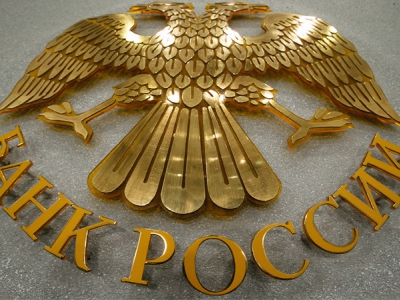Central Bank of Russia is monitoring bitcoin market development, says Elvira Nabiullina, Head of Central Bank of Russia
The head of the regulative body explained her position in the interview to CNBC
“So far I can't imagine a situation where bitcoins would be considered a reserve currency but we are looking at how this market is developing, we are noting certain risks there and we've informed the market players that we identify these risks and because there are(inaudible) many representatives in that particular sector that could be resorted to some dubious operations and transactions”
Nabiullina highlighted that Central Bank will regulate bitcoin business if necessary.
“You know the kind of policy we conduct about dubious transactions, but we are watching over the development of this market and see that for consumers there are certain attractions in bitcoin's mobility, expediency, low cost, so this is something definitely the market will be welcoming so we will be watching with attention and, if necessary, regulate it”
In the second half of 2014, a proposal for a new law that would effectively ban bitcoins was presented for debate in Russia. The text of the law proved to be problematic – the term “surrogate money” could be effectively applied not only to bitcoin, but also to bonus programmes of coffee shops and airlines. In the end, the Ministry of Finance had to call the law back and introduce a new version.
The new version of the law was not much better. It entailed penalties ranging from 5,000 RUR to 1,000,000 RUR for any use of bitcoins. The public consultation period for the draft law lasted from 6 February till 8 March. Fourteen people took part in the online discussion and their opinions are displayed on the Russian Integrated State Web Portal.
This March, the Russian Ministry of Finance promised that the bill banning “surrogate money” would be signed into law by the end of this year. The bitcoin community’s negative response to the proposed law has been ignored by the authorities despite the formal online call for public consultation. Some experts advised bitcoin companies to leave the country for good. They also advised bitcoin holders to sell digital currency to avoid possible persecution.
However, according to one of the leading Russian newspapers, Izvestia, the Russian Central Bank, originally very critical of cryptocurrencies, lately became much more favourable towards them. An unnamed official connected to the Central Bank told the newspaper that the regulator might permit and start to regulate some of the bitcoin transactions such as remittances or payments to private accounts. Allegedly, the Central Bank allegedly was going to meet the representatives of financial markets to discuss the question of bitcoin and cryptocurrency use in Russia.
Some observers suggested that a government-run bitcoin exchange could be created to monopolize the ruble/bitcoin conversion.
The same change of heart seems to have taken place in two more countries where the authorities were previously critical towards bitcoin – namely, Ukraine, where an equivalent of the BitLicense has been presented on 10 June, and Vietnam, where the State Bank is reportedly working together with the Department of Public Security on regulating bitcoin use.

















